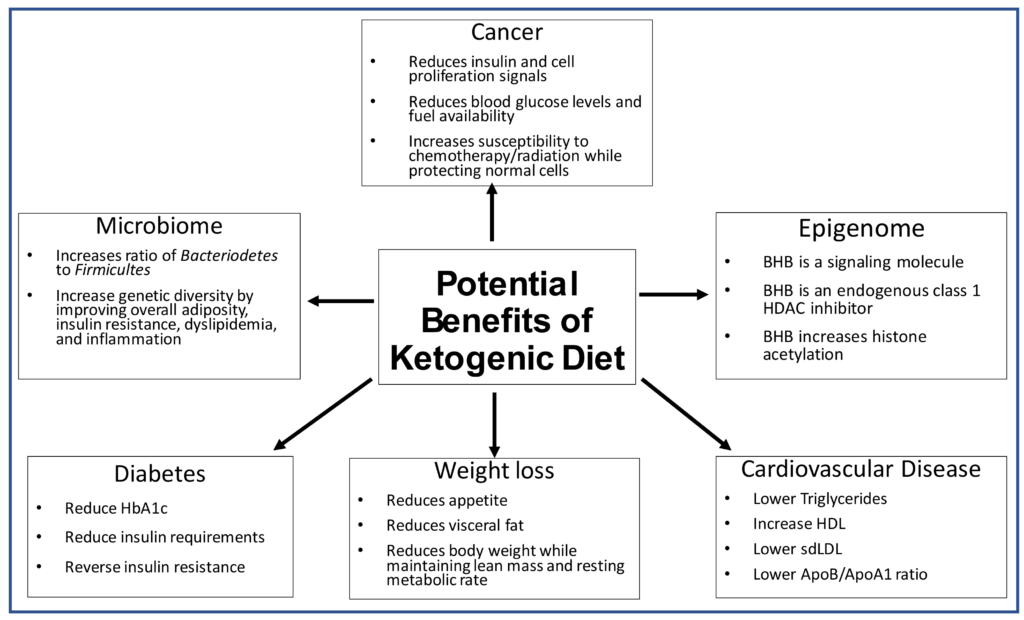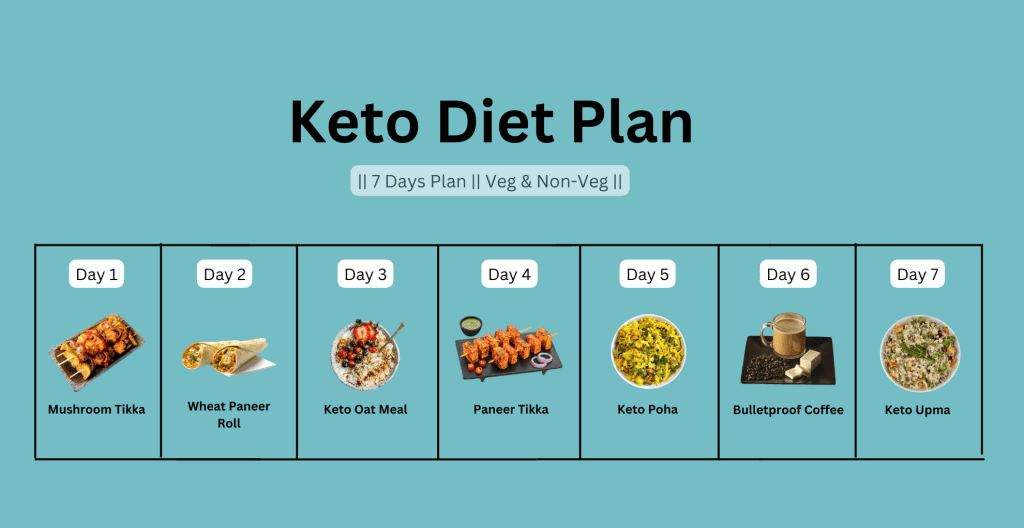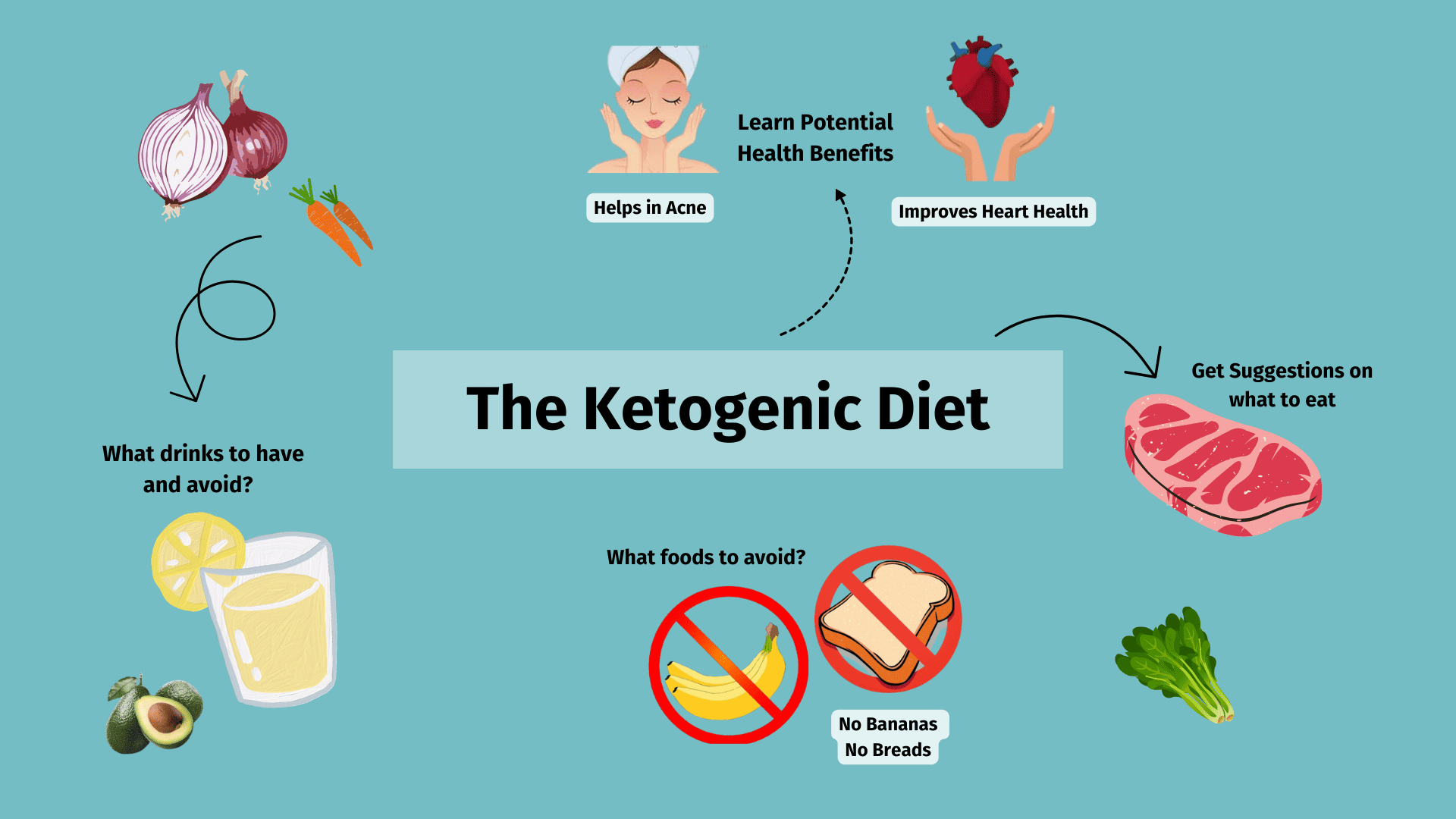Discover the ketogenic diet, a low-carb, high-fat eating plan that promotes weight loss and improves metabolic health. Learn how to implement this diet effectively and explore its potential benefits.
Introduction to the Ketogenic Diet
The ketogenic diet, often referred to as the “keto diet,” is a dietary approach that has gained popularity for its potential to aid in weight loss and improve metabolic health. This high-fat, low-carbohydrate diet works by shifting the body’s metabolism from relying on glucose for energy to using ketones, which are produced from fat breakdown. Importantly, this metabolic state, known as ketosis, can offer several health benefits, including improved blood sugar control and enhanced mental clarity.
This comprehensive guide will explore the principles of the ketogenic diet, its benefits, and practical strategies for implementing it effectively.
How the Ketogenic Diet Works
The ketogenic diet involves drastically reducing carbohydrate intake and replacing it with fat. This reduction in carbs puts the body into a metabolic state called ketosis, where it becomes incredibly efficient at burning fat for energy. Notably, during ketosis, the liver converts fat into ketones, which can supply energy for the brain and other organs.
Key Components:
- High Fat: Typically, 70-80% of daily calories come from fats, such as those found in meat, fish, eggs, nuts, and healthy oils.
- Moderate Protein: About 10-20% of calories come from protein sources like poultry, fish, and eggs.
- Low Carbohydrate: Carbs are limited to 5-10% of daily calories, with most people aiming for 20-50 grams per day.
Benefits of the Ketogenic Diet
The ketogenic diet has been associated with several health benefits, particularly for those with metabolic or neurological conditions. Moreover, it can lead to significant reductions in blood sugar and insulin levels, which may help manage type 2 diabetes.
Health Benefits:
- Weight Loss: The diet can lead to rapid weight loss due to the body’s increased fat burning.
- Improved Blood Sugar Control: Helps regulate blood sugar levels and reduce insulin resistance.
- Enhanced Mental Clarity: Many people report improved focus and mental clarity while on the diet.

Common Challenges and Side Effects
While the ketogenic diet can be effective, it also presents some challenges and potential side effects. For instance, during the initial adaptation phase, individuals may experience symptoms like fatigue, headaches, and mental fog, often referred to as the “keto flu”.
Managing Side Effects:
- Stay Hydrated: Drink plenty of water to help reduce symptoms like headaches.
- Electrolyte Balance: Ensure adequate intake of electrolytes like sodium, potassium, and magnesium.
- Gradual Transition: Gradually reduce carb intake to ease the transition into ketosis.
Practical Strategies for Implementing the Ketogenic Diet
Meal Planning
Plan meals around keto-friendly foods like meats, fish, eggs, nuts, seeds, avocados, and low-carb vegetables. For example, a typical breakfast might include scrambled eggs with spinach and avocado.
Tracking Macronutrients
Use apps or spreadsheets to track your daily intake of fats, proteins, and carbohydrates to ensure you’re meeting keto ratios.
Staying Motivated
Join keto communities or find a diet buddy to stay motivated and share experiences.
Common Misconceptions About the Ketogenic Diet
- Myth: The keto diet is only for weight loss.
Fact: It offers benefits beyond weight loss, including improved blood sugar control and enhanced mental clarity. - Myth: It’s too restrictive.
Fact: While it limits carbs, the diet allows for a wide variety of high-fat and moderate-protein foods. - Myth: It’s unhealthy due to high fat intake.
Fact: The diet emphasizes healthy fats, which are essential for overall health.
Adapting the Ketogenic Diet to Your Lifestyle
The ketogenic diet can be adapted to fit different lifestyles and needs:
- For Athletes: Focus on high-fat foods that support energy production during exercise.
- For Busy Professionals: Prepare keto meals in advance to save time.
- For Vegetarians: Emphasize plant-based fats like nuts and seeds and consider vegan keto options.
Emerging Trends in Ketogenic Diet Research
Furthermore, ongoing research continues to uncover the potential benefits of the ketogenic diet for various health conditions. Notably, studies suggest that it may have therapeutic applications for neurological disorders and certain cancers.
Future Directions:
- Personalized Ketogenic Diets: Tailoring the diet to individual nutritional needs and health goals.
- Keto Technology: Using wearable devices to monitor ketone levels and provide personalized feedback.

Conclusion: Embracing the Ketogenic Lifestyle
The ketogenic diet is not just a dietary plan; it’s a lifestyle choice that requires commitment and understanding of its principles. By focusing on high-fat, low-carb eating and maintaining a balanced intake of protein, individuals can experience significant health improvements and weight loss.
Ultimately, the ketogenic diet offers a unique approach to nutrition that can be beneficial for those seeking to improve their metabolic health and overall well-being.
Keto and Nutrition: A Balanced Approach
Maintaining a balanced diet on the ketogenic diet involves focusing on nutrient-dense foods that fit within the keto guidelines. For example, foods like salmon and avocado are rich in healthy fats and essential nutrients.
Keto-Friendly Foods:
- Fatty Fish: Rich in omega-3 fatty acids, supporting heart health.
- Avocados: High in healthy fats and fiber.
- Nuts and Seeds: Provide healthy fats and essential minerals.
Nutritional Tips:
- Eat Regular Meals: Maintain consistent mealtimes to support metabolism and energy levels.
- Limit Processed Foods: Avoid foods high in added sugars and unhealthy fats.
- Stay Hydrated: Drink plenty of water throughout the day to prevent dehydration.
Conclusion: Embracing the Keto Lifestyle
The ketogenic diet is not just a dietary plan; it’s a lifestyle choice that requires commitment and understanding of its principles. By focusing on high-fat, low-carb eating and maintaining a balanced intake of protein, individuals can experience significant health improvements and weight loss.
Ultimately, embracing the ketogenic diet is a proactive step towards living a healthier, more balanced life.
Mindfulness and the Ketogenic Diet
Mindfulness practices can enhance the effectiveness of the ketogenic diet by promoting a healthier relationship with food and reducing stress. Moreover, mindfulness helps improve mental clarity and emotional resilience, which are beneficial during dietary transitions.
Mindfulness Techniques:
- Meditation: Regular meditation can reduce stress and improve mood.
- Yoga: Combines physical movement with mindfulness to enhance flexibility and balance.
- Deep Breathing: Simple yet effective for reducing stress and promoting relaxation.
Benefits of Mindfulness:
- Improved Focus: Enhances concentration and mental clarity.
- Emotional Balance: Supports emotional regulation and reduces anxiety.
- Better Sleep: Helps improve sleep quality by reducing stress.

Social Connections and the Ketogenic Diet
Maintaining strong social connections is crucial for emotional well-being while on the ketogenic diet. Notably, social support can reduce feelings of isolation and provide practical advice during challenging times.
Building Social Connections:
- Join Keto Communities: Engage in online forums or local keto groups to connect with others who share similar experiences.
- Stay Connected with Family and Friends: Regular communication can strengthen relationships and provide emotional support.
- Use Technology: Video calls and social media can help stay connected with distant loved ones.
Benefits of Social Connections:
- Emotional Support: Provides a network of support during challenging times.
- Cognitive Health: Social engagement can help maintain cognitive function.
- Physical Health: Linked to better overall health and longevity.
Conclusion: Embracing Life at Every Stage
The ketogenic diet is not just a dietary plan; it’s a lifestyle choice that offers a unique approach to nutrition and health. By focusing on high-fat, low-carb eating and maintaining a balanced intake of protein, individuals can experience significant health improvements and weight loss.
Ultimately, embracing the ketogenic diet is a proactive step towards living a healthier, more balanced life.

